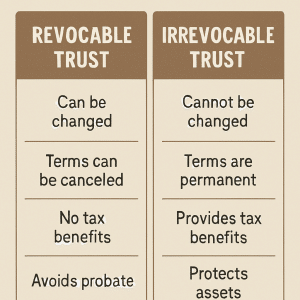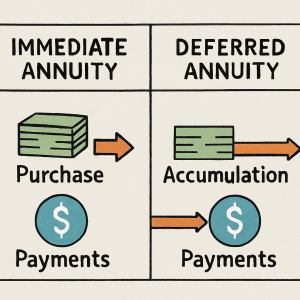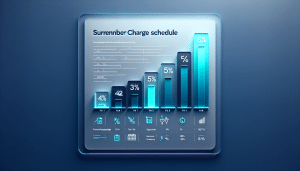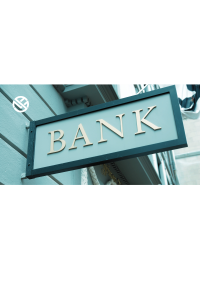Understanding the Different Types of CDs
Certificates of Deposit (CDs) are a popular savings option for people who want a guaranteed rate of return on their money.
There are many different types of CDs, each with their own features and benefits. Here are the different types of CDs you should know about:
- Traditional CDs
- High-Yield CDs
- Liquid CDs
- Jumbo CDs
- Callable CDs
- Bump-Up CDs
- Step-Up CDs
- Zero-Coupon CDs
- Brokered CDs
- Equity Linked
- Foreign Currency
- IRA CD
- Add-on CD
1. Traditional CDs
Traditional CDs are the most basic type of CD. You deposit money into the account and agree to keep it there for a certain period, known as the CD term. In exchange, the bank pays you interest on your deposit. At the end of the CD term, you can withdraw your money along with any interest earned.
High-Yield CDs
High-yield CDs offer a higher interest rate than traditional CDs but typically require a higher minimum deposit amount. The trade-off for the higher rate is that you may have to commit to a longer CD term.
Liquid CDs
Liquid CDs offer the flexibility of being able to withdraw your money before the CD term is up without paying a penalty. However, they typically offer lower interest rates than traditional CDs and may require a higher minimum deposit.
Jumbo CDs
Jumbo CDs require a larger minimum deposit than traditional CDs, usually $100,000 or more. In exchange, banks may offer a higher interest rate. In exchange for the higher deposit amount, jumbo CDs offer higher interest rates than traditional CDs. Institutional investors and high-net-worth individuals often buy jumbo CDs.
Callable CDs
A callable CD is a type of CD that allows the bank to “call” or terminate the CD before the maturity date. If the bank decides to call the CD, you will receive your principal plus any accrued interest.
The trade-off is the risk that the bank may call the CD at a time that is not convenient for you, or at a time when rates are lower than your current CD was paying. Callable CDs typically offer higher interest rates than traditional CDs to compensate for the risk of early termination.
Bump-Up CDs
Bump-up CDs allow you to “bump up” your interest rate if rates go up during the CD term. This feature can be useful if you think rates are likely to increase but If interest rates rise during your CD term, you can “bump up” your rate to take advantage of the higher rate.
You still want the security of a fixed-term deposit. However, these CDs typically come with a lower initial interest rate than traditional CDs and may require a higher minimum deposit.
Step-Up CDs
Step-up CDs offer an increasing interest rate over the CD term. The interest rate is typically lower than what you would get with a traditional CD, but it may be a good option if you think interest rates will rise in the future.
Brokered CDs
A brokered CD is a type of CD that you purchase through a broker rather than directly from a bank. To purchase a brokered CD, you must have a brokerage account. Brokered CDs may offer higher interest rates than traditional CDs (not always), but they may also come with higher fees and a higher minimum deposit requirement.
Additionally, brokered CDs are more liquid than traditional CDs because you can trade them on the secondary. However, if you trade your brokered CD, you may take a loss; this typically happens if you trade when current rates are higher than the interest rate your CD pays.
Equity Linked
Equity-linked CDs are a type of FDIC-insured certificate of deposit that offer returns tied to the performance of a stock index like the S&P 500. Typically, these CDs have a term of five years, although terms may vary.
While equity-linked CDs offer the potential for higher returns than traditional CDs, there is no guarantee that you will receive more than the guaranteed payment at maturity. As such, equity-linked CDs are best suited for investors with a long-term investment horizon and a willingness to tolerate market fluctuations in exchange for potentially higher returns.
However, it is important to note that equity-linked CDs are not without risk, and investors should carefully consider the terms and conditions of these investments before committing their money.
Foreign Currency
Foreign currency CDs are a unique type of certificate of deposit that you buy with U.S. dollars but issued in foreign currencies like British pounds or euros. Upon maturity, the CDs will be converted back into U.S. dollars. However, investing in foreign currency CDs can be risky due to the fluctuating exchange rates between currencies, which can wipe
Furthermore, the intricacies of the foreign currency market can make these CDs challenging even for experienced investors. As such, foreign currency CDs are best suited for investors with a high-risk tolerance and a deep understanding of the foreign currency market. Investors should carefully evaluate the risks and benefits of foreign currency CDs before investing.out any potential gains.
IRA CD
If you have an individual retirement account (IRA), you may want to include an IRA CD as part of your retirement plan. IRA CDs are offered by retirement planning companies and are better suited for people nearing retirement than for young investors. These CDs are best for people who are cautious about taking investment risks and want guaranteed returns from a CD to build up their retirement savings.
Zero-Coupon CD
When you invest in zero-coupon CDs, you buy them at a discounted rate from their par value, which is the value they will have at maturity. Unlike other types of CDs, there are no periodic interest payments associated with zero-coupon CDs.
As an example, if you invest $85,000 in a 10-year, $100,000 zero-coupon CD, you will not receive any interest payments during the term of the CD. Instead, when the CD matures, you will receive the full face value of $100,000 along with the accrued interest.
However, zero-coupon CDs have a couple of drawbacks. Firstly, they are typically long-term investments, and you will not receive any interest until the CD matures. Additionally, you must report the accruing interest as income each year and pay taxes on it, even though you cannot receive the interest until the CD matures.
This means that each year, your base will be higher than the previous year, resulting in a larger tax bill. To obtain a zero-coupon CD, you can inquire at your bank, but you may need to go through a brokerage firm.
Add-On CD
Almost every CD is a single premium savings vehicle. This means you cannot add any more money to your CD after the first deposit. What makes add-on CDs unique is that they allow you to make ongoing contributions. The number of added deposits you can make with an add-on CD varies, so be sure you read the fine print.
What's Next?
CDs can be a great option if you want to earn more on your savings but don’t want any market risk. Banks, credit unions, and other financial institutions offer many types of CDs. It is important to understand the different varieties so you can purchase a CD that best meets your overall goals and objectives.
Now that you understand how each type works – it’s time to shop and compare today’s best CD rates. If your primary objectives are principal protection a guaranteed interest rate a fixed annuity may warrant consideration.
Fixed annuities are often referred to as a “CD type” annuity because of their similarities. Fixed annuities pay a guaranteed rate for a set number of years.


















